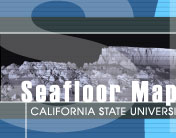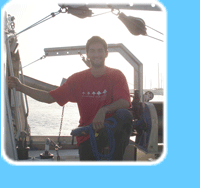



| TRAINING |  |
Science Program Overview: The mission of the Division of Science & Environmental Policy (SEP) at CSUMB is to explore the interactions of earth’s physical and biological environments through active learning and applied research in marine, coastal, and watershed systems. Three overarching goals unite the program:
To enable students to apply an earth systems perspective to evaluate and solve environmental problems using scientific, technical, and analytical skills.
To prepare students for leadership roles in which they will devise effective policy solutions by integrating biological, physical, and social dimensions.
To educate students who will be qualified to pursue ethical and rewarding career pathways.
| SEP (ESSP) COURSE | DESCRIPTION |
| 332 Introduction to Geographic Information Systems (GIS) and Global Positioning Systems (GPS) | Theory and application of spatial data acquisition, analysis, and display using an integrated, hands-on, project-based approach. Covers geographic information systems (GIS) and the Global Positioning System (GPS). Course completion results in ArcGIS certification from ESRI and GPS Mapping certification from Trimble Navigation (TerraSync).. |
| MSCI 433
Seafloor Mapping |
Project-based course applies advanced technologies for data acquisition, analysis and display to current marine research initiatives and environmental issues. Hands-on application of sidescan and multibeam sonar, Geographic Information Systems (GIS), quantitative video habitat mapping, computer modeling, remote sensing, image processing, hydrographic mapping, and Global Positioning System (GPS). |
| MSCI 532 Advanced GIS & Spatial Analysis | Theory and application of advanced spatial data acquisition, analysis, and display using an integrated, hands-on, project-based approach. Use of geographic information systems (GIS) for spatial analysis, hypothesis testing, and decision making. Theory and practice of advanced GIS topics and methods such as raster analysis, dynamic segmentation, geocoding, spatial statistics, and geodatabase design. (Offered spring semester.) |
| MSCI 533 Seafloor Mapping |
(Formerly titled Applied Remote Sensing for Coastal & Marine Systems) Seafloor Mapping: Applies current hydrographic survey techniques to marine habitat mapping. Utilizes the CSUMB Seafloor Mapping Lab seafloor mapping system and vessel for survey design, data acquisition, analysis, and display. Technologies include sidescan sonar, multibeam bathymetry, hydrographic survey design, ROV, acoustic tracking, motion correction, GIS, GPS and vessel navigation.
|
| MSCI 490 Marine Sci Honors Capstone | Student works with advisor(s) to complete a Marine Science Honors Capstone project, including a written product and some form of presentation (including an oral presentation and/or a poster presentation). The precise structure of the course will vary among advisors. Students must have an approved research project prior to enrolling in this course. (Credit/ No Credit Available.) (Students have the opportunity to work on a subset of SFML research projects) Previous student capstones within SFML |
| 2004 CSU Wang Family Excellence Award [CSUMB Campus Connection article] |
|